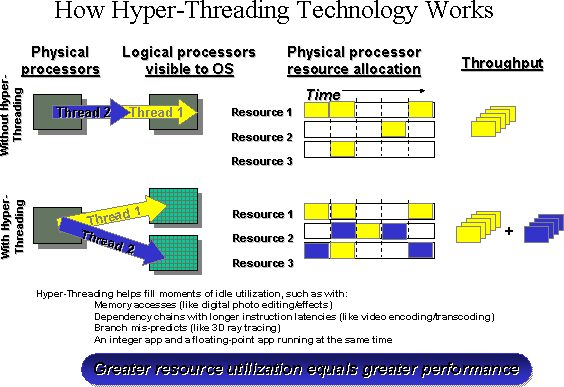Intel's Pentium Performance Hangs on a Hyper-Thread
Get Tom's Hardware's best news and in-depth reviews, straight to your inbox.
You are now subscribed
Your newsletter sign-up was successful
Overall: More To Life Than Clock Speeds
HT does not represent a radical shift away from Intel's existing Pentium 4 architecture, nor will it require new programming skill-sets. Users only stand to benefit while the transition to an HT architecture will remain largely transparent to developers. Applications already written for multi-processor applications will utilize HT two-logical processor applications. According to Sysmark tests run by Tom's Hardware , HT does indeed offer significant performance boosts independent of clock speed gains in the 3.06 Pentium 4. The boost in speed in alone also does not take into account multi-tasking, such as the time it takes to open a large PowerPoint application while a heavy-duty virus check runs in the background.
However, only WindowsXP recognizes HT in a Windows environment, so while existing multi-threaded applications may be able to take advantage of HT, older version of Windows will not.
In summary, with so many performance gains that HT offers independent of clock-speed, perhaps Intel is on the verge of ending its emphasis on the megahertz race with AMD. At the very least, Intel has begun to attempt to convey to the average user that there is more to life than clock speeds alone.
Get Tom's Hardware's best news and in-depth reviews, straight to your inbox.
Current page: Overall: More To Life Than Clock Speeds
Prev Page A History Of Parallelism